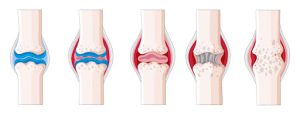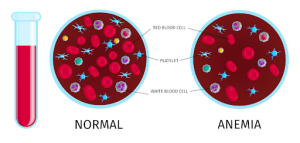What is peptic ulcer?
Peptic ulcers are open wounds that occur on the inner lining of the stomach and the upper part of the small intestine duodenum. Stomach ache is the most general symptom of peptic ulcer.
Peptic ulcers include:
- Gastric ulcers: develops on the inner side of the stomach.
- Duodenal ulcers: develops on the upper part of the small intestine (duodenum).
- Esophageal ulcers: develops inside the esophagus.
The reasons of peptic ulcers are infection with the bacterium Helicobacter pylori (H. pylori) and continuous use of nonsteroidal anti-inflammatory drugs such as ibuprofen and naproxen sodium. Spicy foods and stress can worsen the symptoms but do not cause peptic ulcers.
Causes of peptic ulcers:
Ulcers develop when digestive juices harm the walls of the stomach or small intestine. Our digestive tract is overlaid with a mucous layer that usually protects against acid. You could develop an ulcer if the acid is increased or the amount of mucous is decreased. Enlisted below are some of the causes:
- Bacteria:
Helicobacter pylori or H. pylori generally, attacks stomach and probably half of the world’s population has H. pylori infection without any visible symptoms. It raises the acid amount, damages the protective mucus layer and causes inflammation in the digestive tract. H. pylori pass on from person to person through kissing or via unhygienic food and water. Mostly people are not affected by the presence of H. pylori whereas; only 10%-15% people develop ulcers.
- Certain pain killers:
Prolong use of aspirin can develop peptic ulcer. Another potential cause of peptic ulcer is the use of NSAIDs (nonsteroidal anti-inflammatory drugs). They are ibuprofen and naproxen. NSAIDs obstruct your body from creating a chemical that helps protect the inner walls of your stomach and small intestine from stomach acid.
Other pain relievers like acetaminophen is not a NSAID and won’t harm your stomach. People who can’t take NSAIDs are mostly suggested to take acetaminophen. If you have H. pylori then the use of NSAIDs can be dangerous because it can potentially damage your mucus layer. Your chances of developing ulcer while using NSAID if you:
- Take high dosage of NSAIDs
- Are 70 years older
- Are a female
- Use corticosteroids
- Have ulcer history
- Use NSAIDs for a long time period
Smoking and drinking alcohol:
You are more likely to develop ulcers if you frequently drink alcohol and do smoking.
Gastrinoma:
Gastrinoma is a very uncommon health condition called Zollinger-Ellison syndrome leading to peptic ulcer disease. This condition creates a tumor of acid-producing cells in the digestive tract. These tumors can be malignant and non-malignant. The cells produce massive amount of acid that harms the stomach tissue.
- Certain causes:
Some situations lead to peptic ulcer disease. People may get ulcers after:
- Being critically sick from certain infections or diseases.
- Having some surgery or radiation therapy.
- Using other medicines, such as steroids.
Role of coffee and spicy foods in ulcers:
Generally it is understood that coffee and spicy foods can potentially cause ulcers. They can worsen the symptoms but cannot cause ulcers. People with ulcers are suggested to eat plain diet. But in present time we know that we can consume whatever foods we like as long as they don’t make the symptoms worse.
Symptoms of a Peptic ulcer:
If you are suffering from peptic ulcer you will probably feel burning abdominal pain from navel to chest which can be from mild to severe. These pangs might wake you up in the middle of the night, in between the meals or on an empty stomach. The pain stays for a few hours, days or weeks. This recurring pain may cease for a while if you eat or take an antacid. Minor ulcers showcase no visible symptoms but if these symptoms appear consult your doctor:
- Feeling bloated
- Burps
- Loss of appetite
- Vomiting and nausea
- Bloody poop
- Sudden weight loss
- Pain in chest
- Heart burn
- Irregular breathing
Ulcer diagnosis:
Doctor will ask certain questions regarding your symptoms. He will check for bloating or pain in stomach. To be more certain doctor may perform some tests:
Endoscopy: doctor inserts an endoscope via your throat into your stomach to search for any issues.
h. Pylori tests: a simple breath test is enough to search H. Pylori. A simple blood or stool test is also an easy way to detect.
Imaging tests: such as X-rays and CT scans can find ulcers. You are told to drink a liquid that covers the digestive tract and make ulcers clear to the machines.
Prevention:
One can prevent or avert ulcers by following these tips
- Consult your doctor about NSAID and ask for alternatives.
- Ask your doctor for protective measures if you can’t avoid taking NSAID.
- Go for low dosage of NSAID along with your meal.
- Give up smoking and drinking.
- Keep yourself safe from infections.




